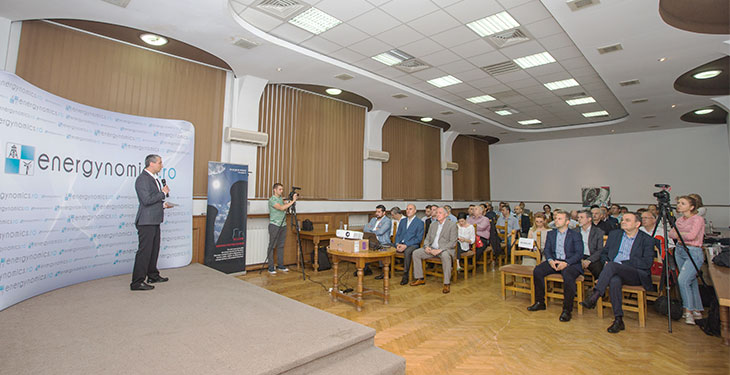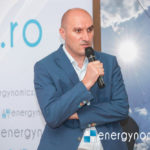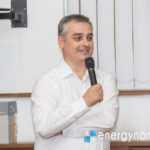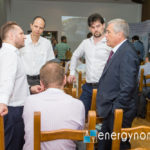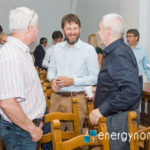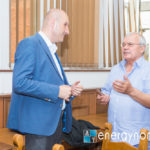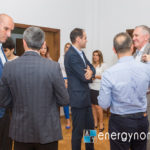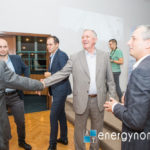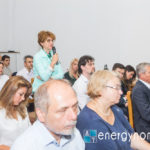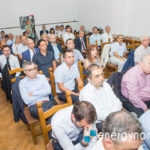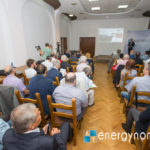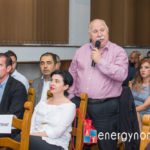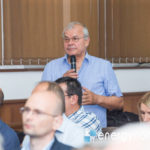Strong demand, especially in Bucharest, and potential new natural gas resources are the premises on which to develop appropriate business models for the development of the cogeneration sector, whether we are talking about the commissioning of new plants or about continuing operation of some of the existing ones. The national leader ELCEN, as well as companies active in related sectors such as MET România Energy and CIS GAZ, spoke at the Energy Breakfast Club about the future of cogeneration, as built on the challenges of the present.
MET Romania Energy targets a vertically integrated business model
“With the power of new technologies and the expectations of the sector, cogeneration is a very interesting topic at the moment”, said Petre Stroe, general manager of MET Romania Energy. The company has been active on the Romanian energy market since 2009, and by two successive acquisitions it has managed to ensure a solid position in energy supply. “Cogeneration is a target for us because we want to develop a vertically integrated model that includes production capacities”, said Petre Stroe. The new volumes of natural gas from the Black Sea will not be fully absorbed by the industry, so investment can be directed to cogeneration using new and efficient technologies.
“There is this reluctance, maybe a lack of knowledge from local authorities”, warned Petre Stroe. “The old units, transferred to the municipalities, were generally exploited until they turned into scrap. The need for heating has remained, and the need for flexibility (for the national energy system, e.n.) has been added, but local authorities are hampered either by long tenders or by cumbersome adjudications”, the general manager of MET Romania Energy said.
- Claudiu Crețu
- Petre Stroe
- Sebastian Călugăr
- Cristi Bivolaru
The business model for cogeneration must not necessarily be based on subsidies, which are too unpredictable, but on the supply of electricity and heat, as well as on some way to allow for such units to participate, under conditions of competition and non-discrimination, at auctions for balancing the national energy system. Specifically, MET Romania Energy is considering engaging in a greenfield project, in a location with easy access to infrastructure, based on natural gas as a primary resource.
Constantin Ioaniţescu, adviser in the Ministry of Energy, former General Manager of Termoelectrica, contributed with clarifications regarding the investment costs for new cogeneration units, starting from the history of the energy industry. It is common that the most performing and sophisticated technologies are also the most expensive, said Constantin Ioaniţescu. “In order to make these costs bearable, manufacturers have increased the scale of projects, so that from 25 MW groups they have gradually increased to 50 MW, 100 MW, 125 and 150 MW. Today, the combined cycle cogeneration system most commonly produced and sold is that of 400 MW”, said Ioaniţescu. “For a 400 MW group, the specific investment cost is about 750,000 euros per installed MW. For a 150 MW group, the specific investment cost is about 1.1 million euros, and for a small scale at 50 MW – the most suitable for Romania – the cost reaches 1.4 million euros on MW.”
50 MW cogeneration group on natural gas in Mureș
CIS GAZ, a group of Romanian companies, also presented its project to build a 50 MW natural gas cogeneration group. According to Sebastian Călugăr, CIS GAZ general manager, the benefits of implementing a cogeneration system are high efficiency of up to 90%, with savings of up to 50% in primary energy, but also increased flexibility and reliability of energy supply (increasing the quality of electricity). From the beneficiary’s point of view, the increase in competitiveness, by reducing the vulnerability to current disruptions and a significant reduction of the carbon footprint, must be emphasized.
Sebastian Călugăr also outlined the technical considerations and those related to the location, in relation with the company’s investment in the cogeneration plant, underlining that “the investment recovery period is 4, up to 6 years, at a minimum load of 3,000 hours per year, to over 75% of capacity”.
DESCARCĂ PREZENTAREA LUI SEBASTIAN CĂLUGĂR
The technical solution for the CIZ GAZ project benefited from the involvement of the Eneria experts. Cristi Bivolaru, responsible for sales of gas applications at Eneria, explained the operating diagram of a generating set, and insisted that CIS GAZ’s specialized technicians would be trained and certified by the manufacturer of the generating sets (Caterpillar). “We will also provide remote operating solutions, such as start/stop in case of failure, modifying the parameters, and adapting, in every moment, to the local operating conditions”, said Cristi Bivolaru.
Sebastian Călugăr said that 60% of the needed funding will be provided by a partner in Germany and the rest will be obtained locally from own funds, bank loans and others.
C. Crețu (ELCEN): The financing of any investment needs the bonus for cogeneration
Cogeneration is closely related to district heating systems, so that the intervention of Claudiu Creţu, special administrator at ELCEN, was a necessary contribution to put into context all the themes addressed in the other presentations: financing, technologies, business models. “This past gives no confidence in the present and casts doubts on the future: However, the recent decision of the CGMB, taken with no vote against, on the achievement of the integrated system of producing, transporting, distributing and supplying thermal energy to the inhabitants of the Capital, with the consequence of better answering to the essential needs of utility and general public interest, is the viable solution for revitalizing the district heating system in Bucharest and for ensuring the continuity and the quality of the public service supply of thermal energy”, he said.
DOWNLOAD THE PRESENTATION OF CLAUDIU CREȚU
Reorganization is the prerequisite for having the necessary investments done, insisted the ELCEN official, who presented the sources of financing that the municipality will be able to access: own funds, repayable attracted funds (EIB, EBRD, Japan Bank for International Cooperation – JBIC) and non-reimbursable funds: EUR 180 million for the rehabilitation of the primary heat transport grid, another EUR 170 million for a facility for energy recovery from waste (incinerator) and other substantial amounts that could be transferred following the reallocation of unused funds in the precedent budgetary period for the rehabilitation of one of the ELCEN’s electrothermal plants.
“The integration of the district heating system in Bucharest is the only solution by which heating can be provided for about 580,000 apartments and about 5,700 institutions, social objectives and economic agents in the capital”, concluded Claudiu Crețu. Municipal subsidies will be maintained, the ELCEN representative said, and the comment was bolstered by Cristina Cremenescu from Veolia Energy, who insisted that projects for horizontal distribution of thermal agent should be included in the national investment plans, on an energy efficiency axis. “The subsidy is conditioned by the possibility of individual metering and highlighting of individual consumption. Horizontal distribution is a way for customers to control their consumption independent by neighbors and, on the other hand, it would allow all criteria to be met so that low income people can receive subsidies”, Cristina Cremenescu said.
All present agreed that the development of the sector cannot begin without a new bonus scheme replacing the one scheduled to expire in 2022. Moreover, it is essential that the new scheme be adopted as soon as possible, in order to encourage the timely construction of new cogeneration groups and to save as many of those still in operation.
Over 50 representatives from AON România, Ariston Thermo, CET Govora, CIS GAZ, Cogenerg Services, Ecohornet, ELCEN, Emerson, Eneria, Facilities Management Service, Gaz Sud, Ijdelea Mihăilescu Spari, Kawasaki, Logstor, MET România Energy, Ministerul Energiei, RADET, Romelectro, Sixt, SRL Horus, TEB Energy Business, Turbo Tech, Veolia, WeTranslate, Wilo attended the presentations and participated in discussions.
The event was organized by energynomics.ro with the support of our partners: CIS-GAZ, ELCEN, MET România Energy.
Participation
This year, energynomics.ro will organize 10 Energy Breakfast Club meetings. The schedule and the proposed themes for 2017 are available in the Energy Breakfast Club dedicated page.
